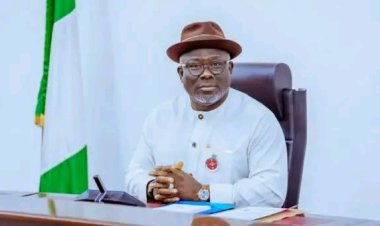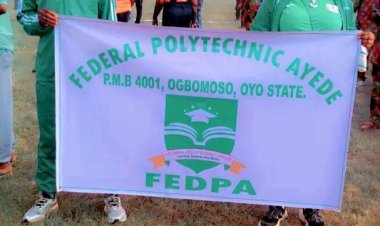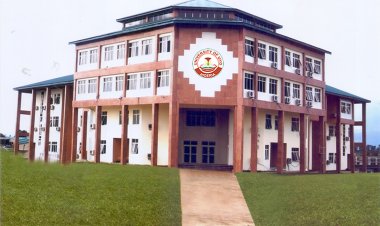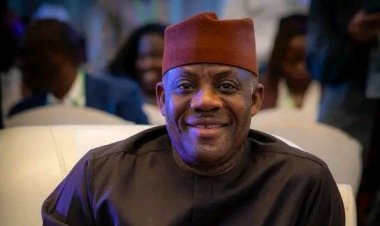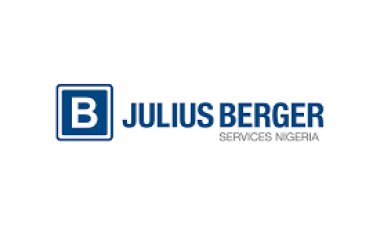Nnamdi Azikiwe University Hosts National Conference to Tackle Education Challenges
In a two-day National (hybrid) Conference held by the Faculty of Education at Nnamdi Azikiwe University in Awka from November 1st to November 2nd, 2023, education experts, policymakers, and stakeholders convened to address critical challenges confronting Nigeria's educational sector.
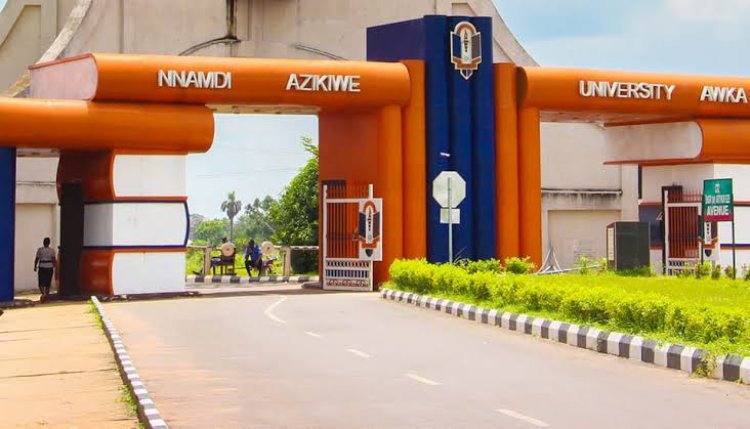
The Faculty of Education at Nnamdi Azikiwe University in Awka recently hosted a two-day National (hybrid) Conference, spanning from Wednesday, 1st November to Thursday, 2nd November 2023. The event brought together education experts, policymakers, and stakeholders to deliberate on crucial challenges facing the educational sector in Nigeria.
The opening ceremony on November 1st, 2023, featured distinguished guests, including the Vice-Chancellor of Nnamdi Azikiwe University, Prof. Charles O. Esimone, and other notable figures such as Prof. Titus Amodu Umoru and Prof. Chinyere Augusta Nwajiuba, who delivered the keynote address and lead paper, respectively.
Over 75 papers were presented during the conference by participants from various parts of the country. The discussions revolved around key themes, including funding of education, teaching methodologies, research and community services, public-private partnerships, poverty reduction, empowerment, education for sustainable development, institutional reforms, ICT education, inclusive education, education policies and implementations, teacher preparation, and entrepreneurship studies.
READ THIS: UNIZIK Admission Form Requirements for Ph.D. Programs and Application Fees
Participants identified numerous inconsistencies and discrepancies in the formulation and implementation of educational policies in Nigeria. Notable gaps were highlighted, particularly in primary and secondary education, where insufficient human and material resources were evident. The challenges were noted to be even more pronounced at the tertiary level.
Several factors contributing to these challenges were discussed, including the economic environment, socio-cultural tensions, a flawed legal system, technological deficiencies, and a problematic political landscape. The consequences of these inadequacies were identified as corruption, inadequate funding, poverty, unemployment, and insecurity across various sectors of Nigerian society.
SEE THIS: UNIZIK Suspends Staff Member for 6 Months Over Degree, NYSC Certificates Forgery
In response to these challenges, participants proposed several solutions:
1. Government and other stakeholders should increase funding for education.
2. Collaboration among stakeholders, including families, educators, and local organizations, should be encouraged to provide mentorship and internship opportunities.
3. Expansion of school feeding programs to address malnutrition among children from impoverished backgrounds.
4. Intensive transformation of learners' mindsets to appreciate the importance of entrepreneurship education.
5. Comprehensive investment in educational technology and professional skills development.
6. Collaboration between the government and industries to align educational programs with job market requirements to address unemployment.
7. Adequate provision of facilities and equipment in schools for individuals with disabilities.
8. Review of the constitutional requirement for leadership positions to mandate at least a bachelor's degree, addressing the current stipulation of a school certificate or its equivalent.
9. Adherence to the UNESCO recommendation of allocating at least 26% of the annual budget to education.
RECOMMENDED: UNIZIK Calculation Formula for the Admission Screening Exercise - 2023/2024
The declaration was signed by Prof. Vivian Ngozi Nwogbo, the Dean of the Faculty of Education, and Prof. Amaka Ukamaka Okeke, the Chairman of the Faculty of Education National Conference Committee. The resolutions reflect a collective effort to address the pressing issues and improve the state of education in Nigeria.

 Mary Nwaeze
Mary Nwaeze 